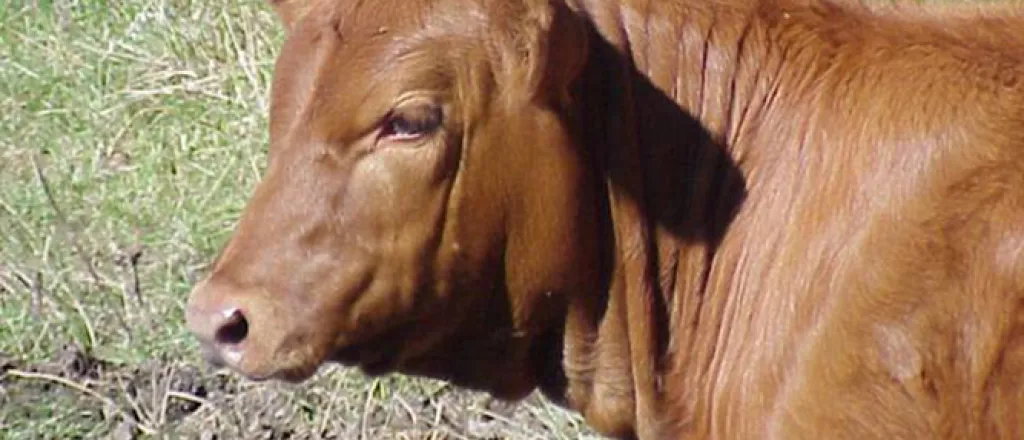
Vitamin A Deficiency in Beef Calves
As calving season comes into full swing, there have been some reports of calves being stillborn, aborted, blind, or very weak due to Vitamin A deficiencies. Vitamin A is a fat-soluble vitamin that cows obtain from green grass or good quality hay. Vitamin A is necessary for vision, maintenance of epithelial tissue and mucous membranes, bone development, and immune function.
Mature cows can store Vitamin A in their livers for up to four months under plentiful conditions. It is when there is prolonged drought or an extended period when they are fed hay that these levels begin to deplete, and supplementation may be required to maintain proper health and reproductive performance of the cow and normal development and health of calves.
Drought
Drought conditions will decrease the amount of carotene in plants limiting the ability for cows to accumulate liver stores during grazing. Additionally, harvested forage during a drought will have extremely low carotene levels decreasing the ability of cows to consume their requirements during the winter feeding. Another complicating factor is that many drought-stressed forages have elevated nitrate levels. High nitrate levels are thought to lead to destruction of carotene and Vitamin A in the digestive tract and increasing requirements for Vitamin A by depressing thyroid function. It is curious to me that drought would be a determining factor in the last couple of year, but you never know.
Clinical Signs
Common signs of Vitamin A deficiency are reduced feed intake and growth, rough hair coat, night blindness, edema, diarrhea, seizures, increased susceptibility to infection, abnormal sperm, abnormal bone growth, low conception rates, abortion, stillbirths, and weak calves. Calves that are born alive from a cow with low Vitamin A may be blind from microphthalmia. There have been some born with this just this year.
Bulls
Bulls also need adequate Vitamin A in their diet. Deficiency can affect sperm development, thereby increasing the chances of low conception rates.
Supplementation
Cows should intake 30,000 to 45,000 IU per head per day. Late pregnant cows and heifers probably should be supplemented if subjected to drought conditions, fed poor quality forage such as corn stalks, stemmy or weather damaged hay, or with minimal green grass intake during the year. Supplements can be in liquid supplements mixed with feed or added to salt. It can also be administered via injection of a Vitamin A supplement. It is important to remember that cows and calves that are deficient in Vitamin A are probably deficient in Vitamin E, copper, manganese, selenium and zinc.
So, if you begin having some trouble this year, it might be important for you to have a diagnostic workup including liver mineral and vitamin levels. Then you can then cost effectively supplement the necessary vitamins and minerals to help ensure a healthy beef cow, bull, and calf.

















